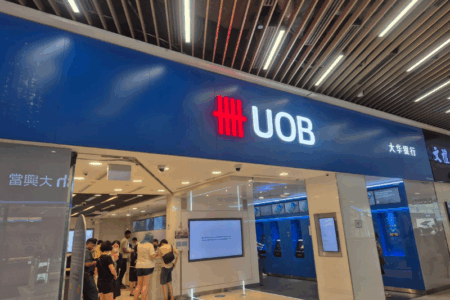Real Estate Investment Trusts (REITs) have long been a favourite among Singapore investors.
They are prized for their steady dividends and relatively low volatility compared to individual stocks.
But not everything you hear about REITs is true.
Not understanding how REITs work or believing common myths can lead to poor investment decisions and disappointing returns.
Follow as we bust three common REIT myths and show why careful selection and a long-term mindset matter more than chasing short-term yields.
Myth #1: High Yield Means Better
It is only human to chase after the highest yields, believing that more income is always better.
However, a high yield is not always a good sign – in fact, it usually signals elevated risks.
Understanding how yields work is crucial.
A REIT’s yield is calculated by dividing annual distribution per unit by the unit price.
This means yields can rise for two very different reasons: the REIT increases its payout, or the unit price falls.
Unfortunately, it’s usually the latter.
For example, if a REIT pays S$0.05 per unit annually and its price is S$1.00, the yield is 5%.
If the unit price drops to S$0.60, the yield jumps to 8.33% – but your actual income remains unchanged at S$0.05.
Even worse, some REITs maintain artificially high yields by paying out more than they earn, temporarily dipping into capital reserves or proceeds from asset sales.
This is unsustainable – the REIT must eventually cut its payout.
High yields may also stem from falling property values, weak tenants, or financial distress – all red flags investors should heed.
Lippo Malls Indonesia Retail Trust (LMIRT) (SGX: D5IU) is a REIT that invests in a diversified portfolio of retail properties in Indonesia.
The REIT hit a double-digit annualised distribution yield of 11.3% in 2018, with a DPU of S$0.0205 per unit, based on the closing price of S$0.182.
However, the REIT struggled with weak tenants, currency headwinds, and declining occupancy, which led to shrinking distributions.
COVID-19 was the nail in the coffin that ultimately led to a sharp drop in LMIRT’s share price, and the REIT has yet to recover since.
LMIRT’s yield spiked from 10% to 36% between February 2020 and January 2021 as its share price plunged from S$0.23 to S$0.06, and by 2023 its payout had collapsed to S$0.0004 per unit (2.35% yield) before dividends were suspended.
In contrast, CapitaLand Integrated Commercial Trust (CICT) (SGX: C38U), which is one of the largest REITs for retail and office in Singapore, pays a consistent moderate yield of around 5%.
Backed by prime properties and stable occupancy, CICT announced a dividend of S$0.0562 per unit for 1H2025, S$0.0019 higher than the same period in 2024.
Investors should refrain from chasing yield blindly.
A consistent and sustainable 5% is far better than a risky double-digit yield.
Focus on the quality of the assets that the REIT holds, its management strength, and its business fundamentals before deciding on a REIT to invest in.
Myth #2: All REITs Are Defensive
REITs are often deemed “safe” investments because they own physical properties.
Some investors believe that REITs are “defensive” plays, and therefore immune to market swings and recessions.
But not all REITs are created equal.
How defensive a REIT is depends on the property type, tenant profile, and lease structure.
Sectors such as hospitality and retail are highly cyclical, and during prolonged economic downturns, they can greatly affect a REIT’s income.
In comparison, REITs with assets in healthcare and industrial sectors tend to be more resilient.
Tied to tourism cycles, CDL Hospitality Trusts (SGX: J85), or CDLHT, was hit hard during the pandemic when tourism hit a standstill for approximately two years.
In the three years before the pandemic (FY2017 to FY2019), CDLHT offered between S$0.0902 and S$0.0926 per unit.
However, during the pandemic, it paid out S$0.0495 per unit in 2020 and S$0.0427 in 2021, before climbing slightly to S$0.0563 in 2022.
In comparison, Parkway Life Real Estate Investment Trust (SGX: C2PU), which invests primarily in assets used for healthcare and healthcare-related purposes, kept its dividend yield steady even during the pandemic.
The REIT paid out steadily from 2019 to 2022, rising from S$0.1319 per unit in 2019 to S$0.1438 in 2022.
Parkway Life REIT proves to be resilient as its leases are long-term, often inflation-linked, and backed by strong operators, allowing it to deliver steady growth even in turbulent times.
Investors need to refrain from generalising all REITs.
Healthcare REITs are often more resilient and better at weathering downturns than retail and hospitality REITs.
Myth #3: REITs Can Grow Forever
A common misconception about REITs is that they have never-ending growth.
Many investors believe that, as REITs often expand by acquiring new properties, their distributions per unit (DPU) will keep rising indefinitely.
However, REIT growth depends heavily on their access to cheap capital, quality acquisitions, and supportive economic conditions.
Growth is difficult during periods when interest rates rise or when property valuations peak.
The rising interest rates, which makes refinancing more expensive, and higher cap rates in recent years have caused many REITs to slow down their acquisitions or DPU to stagnate.
REIT growth has its own limits, and investors should favour companies with strong balance sheets and disciplined management instead of those that focus only on aggressive expansions.
Prudent capital management, moderate gearing, and gradual yet steady acquisitions of prime properties are the true drivers of long-term REIT success.
Get Smart: Quality Over Quantity
Blindly believing in REIT myths can lead to costly mistakes.
Not every REIT is defensive, high yields can hide underlying weaknesses, and growth is not guaranteed forever.
Building a strong REIT portfolio can serve you for a long time, bringing in steady and substantial income.
The smarter approach is to focus on quality over quantity: quality sponsors, high-quality, resilient asset classes, sustainable payout history, and disciplined capital management.
When the market is unpredictable, where can you park your money with confidence? Our latest FREE report reveals 5 Singapore dividend-payers built to withstand global storms. Get it now and see what’s still worth holding.
Follow us on Facebook, Instagram and Telegram for the latest investing news and analyses!
Disclosure: Wenting does not own shares in any of the companies mentioned.





